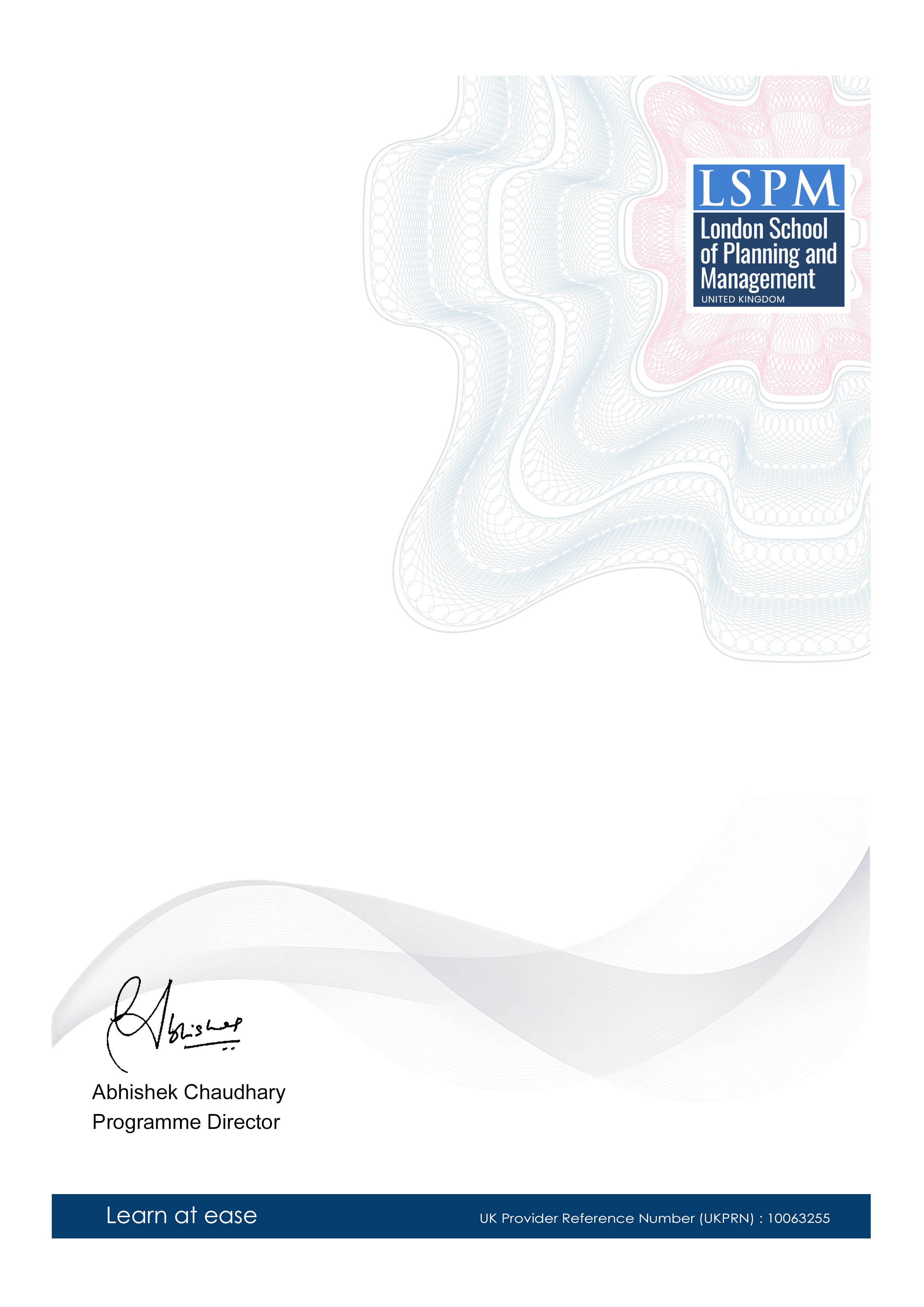Certificate Programme in Food Policy Impact Assessment
-- viewing nowThe Certificate Programme in Food Policy Impact Assessment is a comprehensive course designed to equip learners with critical skills in evaluating the impact of food policies on society, economy, and environment. This programme is crucial in today's world where food security and sustainability are at the forefront of global concerns.
6,701+
Students enrolled
GBP £ 149
GBP £ 215
Save 44% with our special offer
About this course
100% online
Learn from anywhere
Shareable certificate
Add to your LinkedIn profile
2 months to complete
at 2-3 hours a week
Start anytime
No waiting period
Course details
• Introduction to Food Policy
• Understanding the Food System
• Principles of Impact Assessment
• Methods for Data Collection in Food Policy Impact Assessment
• Food Policy Impact Assessment Models
• Case Studies in Food Policy Impact Assessment
• Challenges and Limitations in Food Policy Impact Assessment
• Ethical Considerations in Food Policy Impact Assessment
• Communicating Results in Food Policy Impact Assessment
• Future Directions in Food Policy Impact Assessment
Career path
Entry requirements
- Basic understanding of the subject matter
- Proficiency in English language
- Computer and internet access
- Basic computer skills
- Dedication to complete the course
No prior formal qualifications required. Course designed for accessibility.
Course status
This course provides practical knowledge and skills for professional development. It is:
- Not accredited by a recognized body
- Not regulated by an authorized institution
- Complementary to formal qualifications
You'll receive a certificate of completion upon successfully finishing the course.
Why people choose us for their career
Loading reviews...
Frequently Asked Questions
Course fee
- 3-4 hours per week
- Early certificate delivery
- Open enrollment - start anytime
- 2-3 hours per week
- Regular certificate delivery
- Open enrollment - start anytime
- Full course access
- Digital certificate
- Course materials
Get course information
Earn a career certificate

